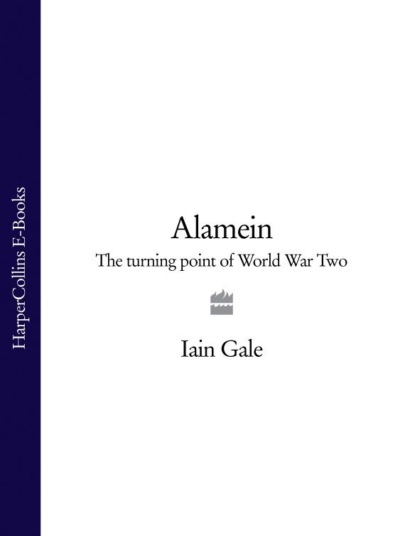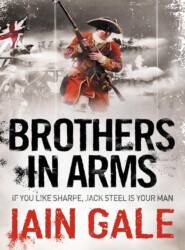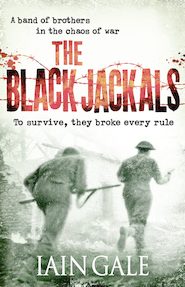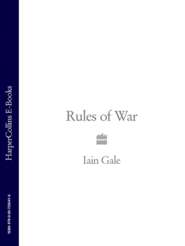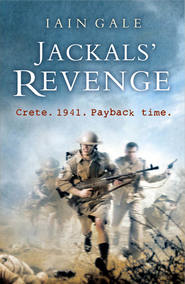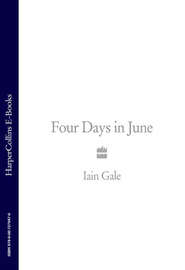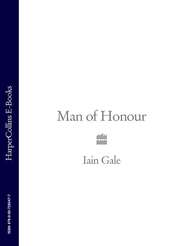По всем вопросам обращайтесь на: info@litportal.ru
(©) 2003-2024.
✖
Alamein: The turning point of World War Two
Настройки чтения
Размер шрифта
Высота строк
Поля
Monier came hurrying over to him, breathless and pouring sweat. He was wearing his helmet and carrying a slung MP38 machine-pistol. He crouched down at the edge of the trench.
‘Lieutenant Ringler, sir. This must be it, don’t you think so? The big one. The one we’ve been waiting for. They’re going to attack.’
‘I don’t know, Monier. Let’s not jump to conclusions.’
Quickly, Ringler pulled himself out of the trench and stood up beside Monier.
‘But sir, look.’
He pointed and Ringler followed the line of his arm back towards the rear of the German lines. He could see nothing now but a sheet of flame punctuated by fresh explosions, every second it seemed. Sometimes two or three at the same moment.
‘Oh, Christ in heaven! Yes, perhaps you’re right. Maybe this is it.’
The two men stood transfixed by the sheer enormity of the cataclysmic destruction being wrought to their rear.
Monier spoke first: ‘Poor devils, whoever’s under that lot.’
‘Just thank God it’s not us Sar’nt-Major. Where’s the signals section?’
Monier pointed to the left: ‘Trench over there, sir. I’ve stood all the men to. As much of the battalion as I can find at least.’
‘Well see if you can raise headquarters on the field telephone. Get the colonel. The adjutant. Get anyone. Find out if they have any idea what’s going on. Then find the rest of the men. I’m going to find my company.’
Five hours later and with his head aching from the endless cacophony of exploding shells, Ringler looked out across the sand from the shelter of a slit trench in the Number Ten company position and noticed that the first light of morning was finally creeping up. The sky hung heavy with thick deposits of sulphur and cordite which cast a nauseous yellow tinge in the air and seemed, he thought, almost tangible, somehow slimy. It was as if some malicious God had wiped an open sore over the beauty of the world. At last the shelling ceased, although in the distance a low rumble indicated that the fighting was continuing and as the day dawned quickly he saw the sky change colour again until it was filled with a black-brown smokescreen that hung at a uniform height across the vast expanse of what overnight had become the battlefield. The smell though remained as it had been before, the unmistakable, sweet and suffocating stench of gunpowder. Acrid and stifling, it penetrated every orifice, reaching into the lungs until you wanted to retch.
At last the sun rose, casting a more healthy light on the smoke-hung horizon. Black plumes curled up from the desert, in particular from the areas containing the Fifteenth and Twenty-First Panzer Divisions and from the heavy artillery batteries. Those he presumed had been the Allies’ major targets for their bombardment.
In his trench Ringler’s number two, a young second lieutenant named Weber, younger even than he, threw up. Ringler had a quiet word with the boy.
‘Hans, it may just be the fumes from the shelling. God knows I feel like puking myself, but we can’t be too careful. We don’t want more dysentery. Not after the last lot and certainly not at a time like this. Get it cleared up will you and then see if you can find the MO.’
He did not know where Doctor Müller was this morning. He had seen him in the night as he went from foxhole to foxhole, just making sure. It was just as well. Two of the men had become slightly delirious from the shellfire and were unable to move. It wasn’t uncommon and Ringler had never seen such a barrage as that they had experienced last night. Rumours had come in all night thick and fast.
He had finally made contact with Battalion HQ at about two in the morning. Word was that this was the big attack they had been expecting and that they should all dig in and prepare themselves for the worst. It seemed bizarre to him that they had so far managed to avoid engaging the enemy. Nor, apart from the two cases of shellshock had they suffered any actual casualties.
For the rest of the night they had struggled to get any further information and Ringler was beginning to despair when he saw Monier coming up to their position. He was covered in dust and his red-rimmed eyes gave away the fact that he had been up all night travelling from company to company with a number of runners.
‘Lieutenant, news from HQ. Staff has sent a message. Tommy’s broken through in the northern sector. We’re counter-attacking.’
‘What about the south?’
‘According to Staff an English armoured division’s been blocked by the Italian paras. The Folgore. They’re brave buggers, sir, for Eyeties. Almost good enough to be Germans.’
‘Perhaps they’ve been picking up tips from us.’
Monier smiled: ‘And the adjutant says to put plan C into operation, sir.’
‘Plan C. He has to be joking. “Extra alertness”? Doesn’t he think we might be alert enough after that lot Tommy threw at us last night?’
‘There were planes too, sir. Thousands of them.’
‘Yes, I heard them. You could hardly fail to.’
Weber was sick again. Ringler turned to him: ‘Hans, I told you. Find Doctor Müller and for God’s sake clean yourself up.’ He turned back to Monier: ‘Has anyone here had any breakfast yet?’
‘There don’t appear to be any rations here, sir.’
‘No rations? Where the bloody hell are all the rations?’
Monier sneered: ‘It seems that some were used at the colonel’s party last night. Seems that it was thought that the lorry would replace them this morning. Only the lorry hasn’t turned up on account of the British attack.’
‘Yes. I see. Though how they expect us to fight Montgomery’s army with empty bellies is beyond me. You and I will have to find something for the men to eat, Monier. There’s no time to lose. We’ve no idea of when the British may attack this sector. And see if you can find something extra specially good, while you’re about it. It may prove to be the last meal any of us ever have.’
EIGHT
10.40 p.m. The start line Samwell
From his position, lying flat on his stomach on the bare rock of the desert at the front of the company, Hugh Samwell had watched the line of white tape for two hours now as it fluttered in the night breeze. It marked the starting point for the attack and he knew that beyond that insignificant marker lay whatever fate had decreed for him. Life, death or something in between that had no name. A lifetime of agony and bitterness. The moon sat high in the sky and lit up the bleak expanse of sand, rock and scrub like daylight.
High above he could hear the hum of the Allied bombers as they flew towards the enemy positions. He was still watching the white tape and thinking about the content of his somewhat disappointing new book, when there was a crash as a single gun spoke and hurled a shell towards the enemy lines. A moment later it seemed to him that the very air itself had been ripped apart as hundreds more took up the refrain. The ground trembled and Samwell hugged himself closer to its heaving mass. Tentatively he raised his head and up in the night sky saw salvo after salvo of shells streaming out from behind the lines towards the enemy. Poor buggers, he thought instinctively. One infantryman thinking of another and thanking God that it was not he who was on the receiving end. Though Samwell knew their turn would come soon enough.
Away in the distance, where the shells and the carpet of bombs had struck home on their targets of minefields, defences and enemy guns, the line was lit up as if by a hundred bonfires. Samwell shuddered at the sight. He could almost feel the searing heat of the explosions and the fire and knew what it must be doing to the men. He knew too that soon they would be sharing the same fate. He did not have long to wait. Ten minutes later it began. He saw the flashes as the forward of the enemy guns opened up and then the shells came crashing in. Crump crump crump crump accompanied by the whizz overhead.
He felt curiously detached, as if he might be at a tattoo at Aldershot watching the performers as they beat out a martial tune, and men depicted in tableaux the Battle of the Alma and the defence of Hougoumont at Waterloo. The impression was amplified as the shells flew high over the infantrymen’s heads and landed, he presumed, in the artillery at the rear. He could picture the scenes of havoc, the mangled guns and the wrecked bodies of the gunners; the cries of the wounded, the shouts of stretcher parties and orders barked by officers desperate to keep their batteries firing, mingling in a cacophony. Counterbattery fire was a particularly costly and bloody affair.
He was aware of lulls in the barrage on both sides, as if it were some strange symphony rising in crescendo and dying away again. Then something changed. Another shell passed overhead, but lower now. And then another, and a third so low that instinctively he ducked, although it must have been twenty yards above his head. He watched for the burst and saw it, perhaps two hundred yards in front. He knew what this meant. The guns had switched their targets from the enemy’s rear, the enemy batteries, to the forward positions.
He knew what it signified: prepare to advance; a prearranged signal. Suddenly his mouth became quite dry. But curiously the rest of his body was quite cool. Cold as ice in fact. He looked at his watch, flipping back the leather cover which protected it: 9.52. Three minutes to H Hour. He wondered whether the pipers really would play as they advanced. Perhaps the story was just another morale-booster. If they did play though then that would surely be the greatest boost to the mens’ morale.
He shifted on his stomach and almost without realizing what he was doing, in a semi-trance, stood up, pushing into the sand with the long ash walking stick which he had intended to leave in the rear at Company HQ. Suddenly the night sky, already made luminous by the brilliant moon, was lit up. Two searchlight beams touched the heavens, intersecting high over his head in the form of a cross; a St Andrew’s Cross, thought Samwell, the saltire of Scotland. It was a good omen. He knew that the whole Division, Fifty-First Highland, high up on the right flank of the army, must see them now. Monty had chosen the Scots for a key role. To break through the line and create a corridor for First Armoured. Samwell knew that if they should fail the tanks would be held up and the whole plan would stall.
Now, without thinking, he began to walk forward, trying to gauge the precise pace as prescribed: seventy-five yards a minute. He looked to his right and saw a line of men, stretching out until they vanished into the night. Without knowing exactly where his men were he shouted towards the rear: ‘Advance, with me. Forward!’
Then he heard it. Long, low and unmistakable. The sound of the bagpipe. It drifted at him across the night and then rose in crescendo as others joined in. Samwell’s heart began to beat faster and he suddenly seemed taller, fitter. He felt a tremendous surge of pride. Pride in the regiment. Proud of the tradition. Proud of what they were doing here and utterly invincible.
He listened to the tune. The regimental march, ‘The Campbells are coming’. His stride lengthened and he looked right and left and saw the effect the music was having on the men alongside him. The tune now was ‘Hieland Laddie’.
Another man appeared, an officer. Samwell wasn’t sure who it was, but he noticed that he had a megaphone and was shouting through it at the men: ‘Keep up there! You there on the left. That man. Straighten the line.’
Samwell turned to his left and found his batman, Baynes, who was walking alongside, just as if they might have been out for a morning’s constitutional. ‘Baynes, run down the line. Tell Sar’nt Dawson to keep his direction by marking from the right. From the right, Baynes. Got it?’
Baynes nodded and sped off. Samwell walked on and as he did, just as he might have when out walking a Highland road, led with the tip of his walking stick. He looked down at it. What the devil was he doing with that in his hand? With a chill he realized that rather than the rifle he had intended to collect from CHQ he was now advancing against the enemy armed only with a .38 revolver and a stout ash stick. He smiled to himself. Then he thought that soon someone was bound to be hit, killed or wounded and he would be able to borrow their rifle. Who would it be he wondered? Which of the men he had come to respect and admire? Perhaps it might even be him. Well, they would know soon enough.
As if in answer, a new sound began which had a higher pitch than the whining of the shells and the explosions. It was a tighter, sharper noise yet still unmistakably that of a gun. A machine-gun; a Spandau, he guessed, or perhaps a Breda. Whatever it was, it was about to make contact with his men. As the thought left him he saw the streams of tracer bullets tearing diagonally towards them through the moonlight.
He turned to the man on his right, the pace-checker whose job it was to count the number of paces forward the company had taken from the start position. The man looked at him, his face lit up by the moonlight, and Samwell saw that he was grinning.
‘How many paces, Roberts?’





